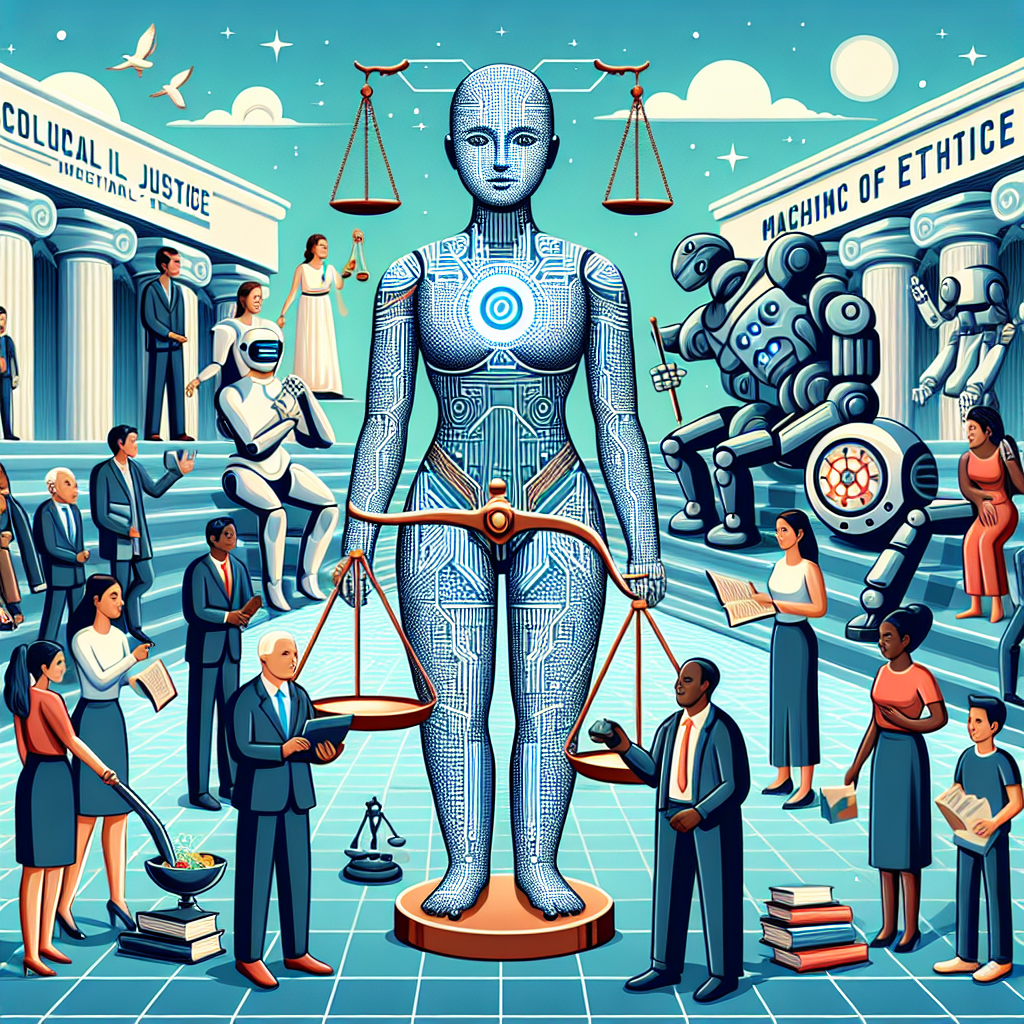Artificial Intelligence (AI) is rapidly transforming the way we live, work, and interact with each other. From self-driving cars to personalized recommendations on streaming platforms, AI is becoming an integral part of our daily lives. As AI continues to advance, it raises important ethical questions about its integration into society.
The Ethics of AI Integration in Society
One of the key ethical considerations surrounding AI integration in society is the potential impact on employment. As AI systems become more advanced, there is concern that they could replace human workers in a wide range of industries. This raises questions about the fairness of AI-driven automation and its potential to exacerbate existing inequalities in the job market.
Another ethical issue is the potential for bias in AI algorithms. AI systems are trained on vast amounts of data, which can reflect existing biases and prejudices. This can lead to discriminatory outcomes in areas such as hiring, lending, and criminal justice. Ensuring that AI systems are fair and transparent is essential to prevent these biases from perpetuating in society.
Privacy is another key ethical concern surrounding AI integration. AI systems often rely on collecting and analyzing large amounts of personal data to make predictions and recommendations. This raises questions about consent, data security, and the potential for misuse of sensitive information. Striking a balance between the benefits of AI and the protection of individual privacy is crucial for ensuring ethical AI integration.
Additionally, there are ethical considerations around the accountability of AI systems. As AI becomes more autonomous and makes decisions on its own, it raises questions about who is responsible for the outcomes of those decisions. Ensuring that there is transparency and accountability in AI systems is essential for building trust and confidence in their use in society.
There are also ethical concerns around the potential for AI to be used for malicious purposes. From deepfakes to autonomous weapons, there are serious implications for the misuse of AI technology. Ensuring that AI is developed and deployed responsibly is crucial for mitigating these risks and safeguarding society from potential harm.
Overall, the ethical considerations surrounding AI integration in society are complex and multifaceted. It is essential for policymakers, technologists, and society as a whole to engage in thoughtful and informed discussions about the ethical implications of AI and to work towards developing ethical guidelines and regulations to ensure that AI is used in a way that benefits society as a whole.
FAQs
Q: What are some examples of bias in AI algorithms?
A: Bias in AI algorithms can manifest in various ways, such as gender or racial biases in hiring algorithms, or socioeconomic biases in predictive policing algorithms.
Q: How can we ensure that AI systems are fair and transparent?
A: Ensuring fairness and transparency in AI systems requires careful attention to the data used to train the algorithms, as well as ongoing monitoring and auditing of their outcomes.
Q: What are some ways that AI can be used for malicious purposes?
A: AI can be used for malicious purposes in various ways, such as creating deepfake videos to spread misinformation or developing autonomous weapons that can make decisions without human intervention.
Q: How can we address the ethical concerns surrounding AI integration in society?
A: Addressing the ethical concerns surrounding AI integration requires a collaborative effort from policymakers, technologists, and society as a whole to develop ethical guidelines and regulations that ensure AI is used responsibly and ethically.

